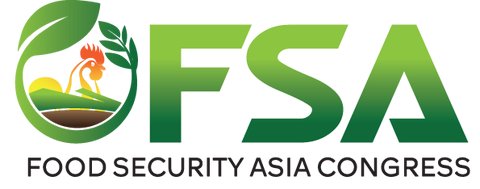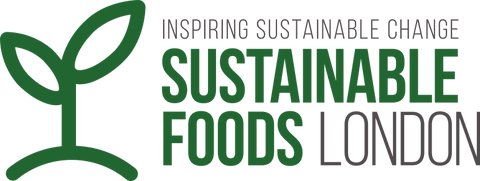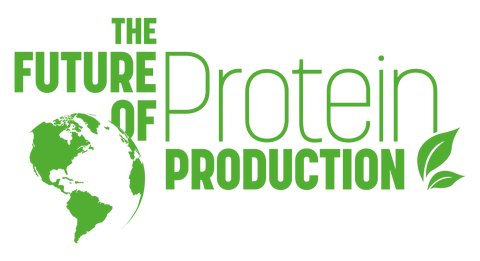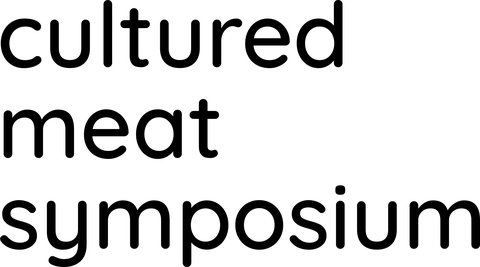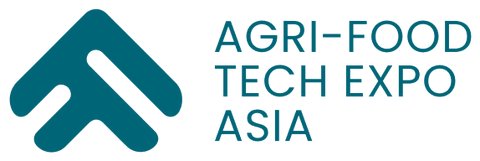Cellular Agriculture Australia Releases Pioneering Food Safety Regulation Resources for Cellular Agriculture Companies Targeting Australia
December 13, 2023 - 3 min read
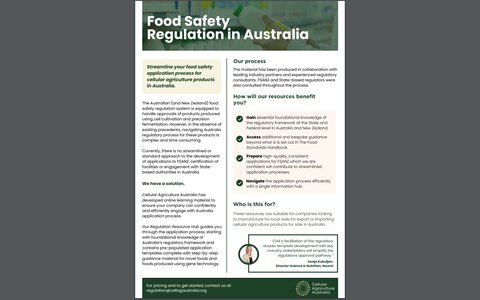
- Cellular Agriculture Australia’s new cellular agriculture Regulation Resource Hub provides companies with a suite of tailored online learning materials, dossier templates, and step-by-step guidance on Australia’s food safety regulation framework for novel foods and food produced using gene technology.
13 December 2023 — Leading not-for-profit Cellular Agriculture Australia (CAA) has released a first of its kind cellular agriculture Regulation Resource Hub developed in consultation with leading industry partners and regulatory consultants. The initiative aims to streamline the food safety application process for cellular agriculture companies in Australia, fostering a simplified pathway for submission and approval of dossiers.
Around the world, regulatory approval is growing with cellular agriculture products now approved for sale in Singapore, the US, India, and Switzerland. In Australia, Impossible’s soy leghemoglobin was approved in 2020, the first application for a cultivated meat product is in its latter stages, and several other companies are poised to apply for food safety approval in 2024.
“Australia has an opportunity to be one of the global leaders in cellular agriculture and accessible, time-efficient and cost-effective food safety regulation is a key to that. The time is ripe to position ourselves as an attractive base for both local and cellular agriculture international companies,” said Sam Perkins, CEO of CAA.
Whilst the Australian regulatory framework is well-equipped for the approval of products produced using cell cultivation and precision fermentation technologies, there is currently a lack of precedents on how companies should navigate the regulatory process.
The current system lacks clarity and consistency regarding the role of different stakeholders, and no streamlined or standardised approach to the development of applications to FSANZ, facility certification, or engagement with state-based authorities in Australia.
In response, CAA has developed a suite of online learning materials including pre-populated dossier templates and step-by-step guidance material on Australia’s food safety regulation framework for novel foods and foods produced using gene technology. These resources were developed in consultation with FSANZ and state-based regulators.
“CAA’s facilitation of the regulatory dossier template development with key industry stakeholders will simplify the regulations approval pathway” says Sonja Kukuljan of Noumi, a founding member of the project.
Kim Tonnet, Head of Regulatory Affairs & Government Relations at All G Foods, adds that “even with an experienced in-house regulatory scientist, regulatory support available to All G Foods to enable its pre-market approvals was limited. Hence the importance of CAA’s work to engage with regulators, applicants and service providers to map out a clear pathway with detailed information on how to address the various safety requirements.”
CAA would like to thank regulatory consultants Simon Brooke Taylor and John Kite, founding industry members All G Foods, APAC Society for Cellular Agriculture, Eden Brew, Noumi, and Vow, and DLA Piper for making this project possible.
You can find out more about CAA’s Regulation Resource Hub here: https://www.cellularagricultureaustralia.org/resources/novel-food-regulation
About Cellular Agriculture Australia
Cellular Agriculture Australia (CAA) is a registered Australian not-for-profit dedicated to advancing the cellular agriculture sector in Australia. Their work is focussed on critical challenges and opportunities facing the cellular agriculture sector in Australia.They work with a diverse range of stakeholders including companies, universities, students, investors, other NFPs, regulators and government agencies who are engaged or looking to engage with the cellular agriculture sector.

